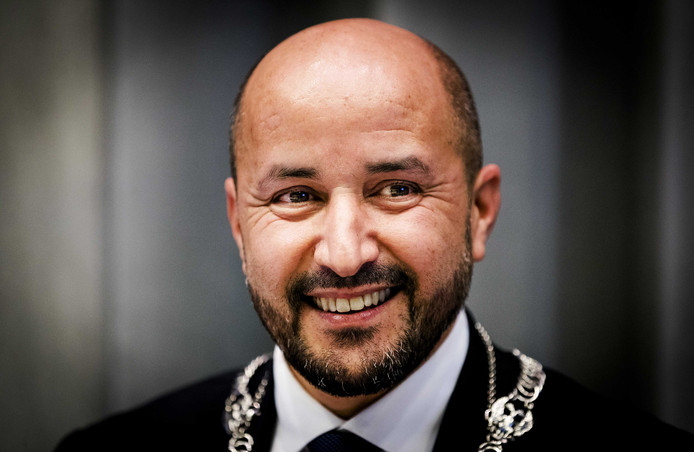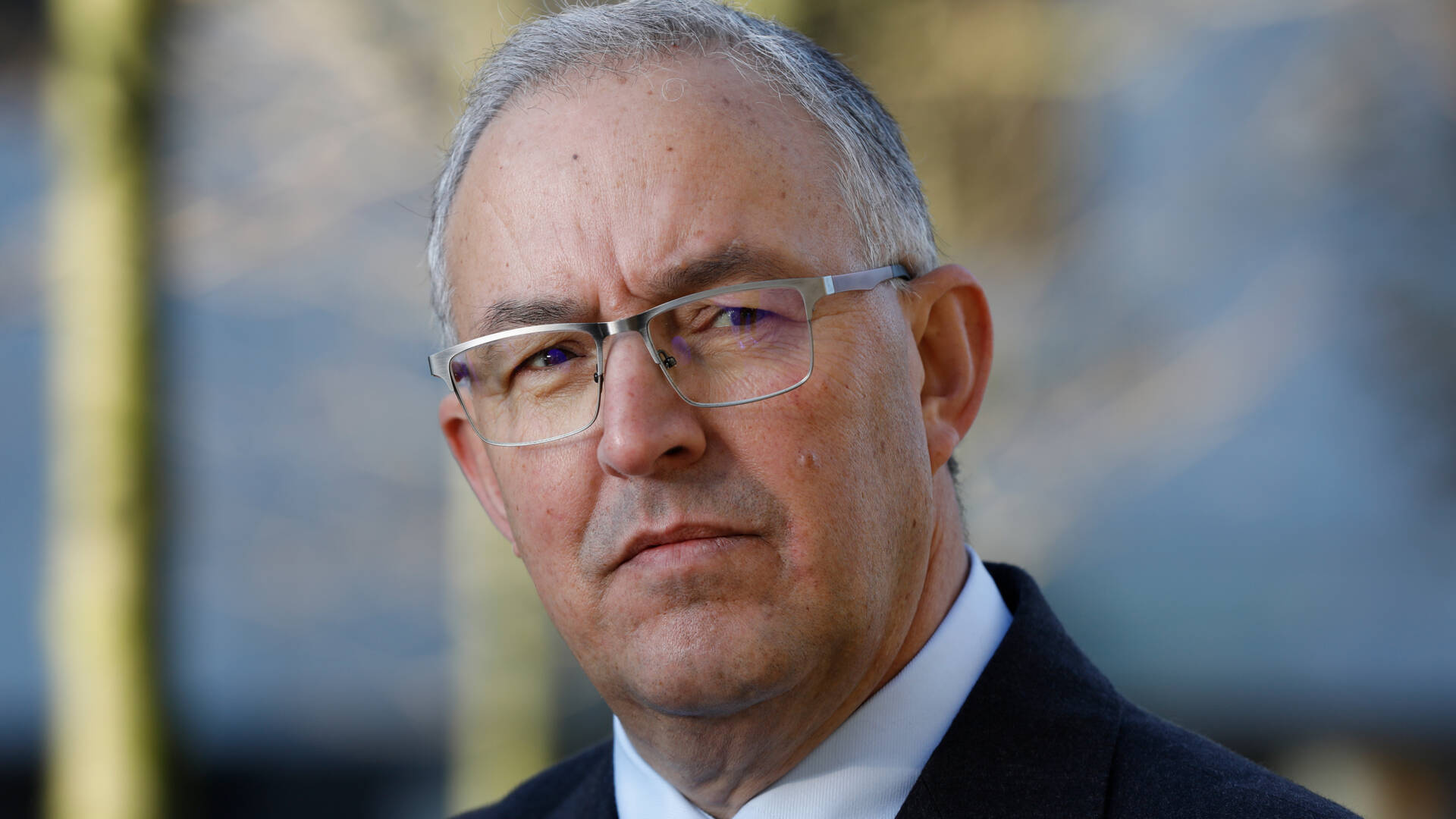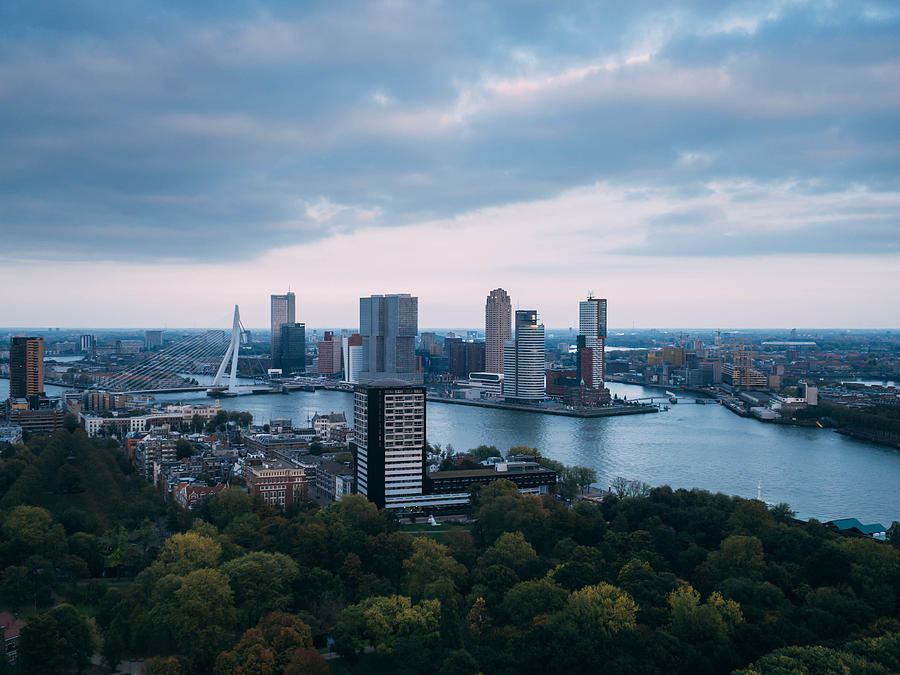|
|
Post by pieter on Dec 23, 2019 12:22:57 GMT -7
The positive side of Dutch MoroccansA non criminal, positive, good Moroccan kid tried to find the positive, non-criminal and non-negative side of the Dutch Moroccans. He made a documentary. At the end of the showing of his documentary in the cinema he cried because he was emotional that the kids shouted his name. Mohammed visited successful Moroccans like a well known rapper and the mayor of Rotterdam Ahmed Aboutaleb. English language speech by the Rotterdam mayor, who is a successful Dutch MoroccanActress Maryam Hassouni Arnhem Mayor Ahmed Marcouch, an excellent mayor, respected by all ethnic groups and political parties Ahmed Marcouch (Arabic: أحمد مركوش; born 2 May 1966) is a Moroccan-Dutch politician and former police officer, civil servant and educator serving as Mayor of Arnhem since 2017. A member of the Labour Party (Partij van de Arbeid – PvdA), he was a member of the House of Representatives from 17 June 2010 to 23 March 2017. He focused on matters of community development. Ahmed Marcouch (Arabic: أحمد مركوش; born 2 May 1966) is a Moroccan-Dutch politician and former police officer, civil servant and educator serving as Mayor of Arnhem since 2017. A member of the Labour Party (Partij van de Arbeid – PvdA), he was a member of the House of Representatives from 17 June 2010 to 23 March 2017. He focused on matters of community development.
He was a member of the municipal council of Amsterdam from 11 March 2010 to 8 September 2010 and previously chaired the Slotervaart borough government from 1 May 2006 to 11 March 2010. Since 1 September 2017, he has been Mayor of Arnhem.
Ahmed Marcouch is tough on crime and he uses his experience as a former police officer in Amsterdam. He can be tough against Moroccan street thugs, criminals or Islamists. He wants a prohibition of the Salafist extremist Islam.
|
|
|
|
Post by pieter on Dec 23, 2019 13:34:58 GMT -7
Other postive examples of Moroccan Dutch people had became successful in a positive way
Hind Laroussi Tahiri (born 3 December 1984), known professionally as Hind, is a Dutch singer of Moroccan descent.
Various Moroccan Dutch singers
Abdelhak Nouri (born 2 April 1997) is a Dutch former professional footballer who played as a midfielder for Eredivisie club Ajax. Nouri operated primarily as an attacking midfielder, but could also be deployed as a winger. In July 2017, at age 20, during a pre-season friendly match, Nouri collapsed and suffered a cardiac arrhythmia attack, which left him with severe and permanent brain damage and unable to continue as a footballer.
|
|
|
|
Post by pieter on Dec 23, 2019 13:46:26 GMT -7
Speaker of the House of Representatives of the Netherlands, Khadija AribShe is an excellent speaker of the Dutch parlaiment. Khadija Arib Khadija Arib (Arabic: خديجة عريب; born 10 October 1960) is a Dutch politician of the Labour Party serving as Speaker of the House of Representatives of the Netherlands since 12 December 2015. She was formally elected on 13 January 2016 but had already served as Acting Speaker since the resignation of Anouchka van Miltenburg on 12 December 2015. Arib became a member of the House of Representatives following the 1998 Dutch general election and has been reelected since, with a brief interruption between 2006 and 2007.Early life Khadija Arib (Arabic: خديجة عريب; born 10 October 1960) is a Dutch politician of the Labour Party serving as Speaker of the House of Representatives of the Netherlands since 12 December 2015. She was formally elected on 13 January 2016 but had already served as Acting Speaker since the resignation of Anouchka van Miltenburg on 12 December 2015. Arib became a member of the House of Representatives following the 1998 Dutch general election and has been reelected since, with a brief interruption between 2006 and 2007.Early life Khadija Arib was born on 10 October 1960 in Hedami near Casablanca in Morocco. She came to the Netherlands when she was 15 years old. Her parents worked at a laundry service in Schiedam. Khadija Arib was born on 10 October 1960 in Hedami near Casablanca in Morocco. She came to the Netherlands when she was 15 years old. Her parents worked at a laundry service in Schiedam.
Arib studied sociology at the University of Amsterdam.
Before her political career, she was a civil servant, educator and social worker.Politics Arib is a member of the Labour Party (Partij van de Arbeid, PvdA) and an MP from 19 May 1998 to 29 November 2006 and since 1 March 2007. Arib is a member of the Labour Party (Partij van de Arbeid, PvdA) and an MP from 19 May 1998 to 29 November 2006 and since 1 March 2007.
In the House, she focussed on matters of racism, discrimination, abuse, domestic violence and youth care. She has been fiercely criticised (mainly by members of the Party for Freedom) for her dual citizenship and for her part in an advisory committee to the King of Morocco. In 2012, she made an unsuccessful attempt to become Speaker and became First Deputy Speaker instead. She was elected Speaker in an interim election on 13 January 2016, defeating three other candidates. On 29 March 2017 Arib was re-elected as Speaker, she was the only candidate for the position.
Following the 2017 elections, Arib chose Edith Schippers as informateur, whose role is to explore possible governing alliances. Following Schippers' resignation, Arib named Tjeenk Willink and Gerrit Zalm for the position.Political positions/s3/static.nrc.nl/images/stripped/arib.jpg) Khadija Arib with prime minister Mark RutteDuring her career, Arib has been a champion for women's rights and the empowerment of women with a migrant background in the Netherlands; she was a founding member and president of the Moroccan Women in the Netherlands Foundation. In 1989, she was held prisoner in Morocco with her 3 children, after publicly addressing issues concerning the position of women in Moroccan society. After intervention by the Dutch Ministry of Foreign Affairs, she was allowed to return to the Netherlands.This video shows the courage of this woman. Her you see her on the congress of the youth movement of the Rightwing populist Forum voor Democratie, Jongerenorganisatie FvD (JFVD). Khadija Arib with prime minister Mark RutteDuring her career, Arib has been a champion for women's rights and the empowerment of women with a migrant background in the Netherlands; she was a founding member and president of the Moroccan Women in the Netherlands Foundation. In 1989, she was held prisoner in Morocco with her 3 children, after publicly addressing issues concerning the position of women in Moroccan society. After intervention by the Dutch Ministry of Foreign Affairs, she was allowed to return to the Netherlands.This video shows the courage of this woman. Her you see her on the congress of the youth movement of the Rightwing populist Forum voor Democratie, Jongerenorganisatie FvD (JFVD).
|
|
|
|
Post by pieter on Dec 23, 2019 14:06:20 GMT -7
Abdelkader Benali (Arabic: عبد القادر بنعلي; born 25 November 1975 in Ighazzazen, Morocco) is a Moroccan-Dutch writer and journalist.
When he was four years old, he and his family, of Berber background, migrated to The Netherlands and settled in Rotterdam, where his father worked as a butcher. When he was twenty-one his debut novel Bruiloft aan zee (Wedding by the Sea) appeared and was a huge critical and commercial success. It was translated into many languages. He received the Libris Prize for his second novel, De langverwachte ("The Long-Awaited").
In addition to novels and plays, Benali has published essays and reviews in respected newspapers and magazines including De Volkskrant, Vrij Nederland, De Groene Amsterdammer, Esquire and Algemeen Dagblad. Benali is an avid long-distance runner, his personal record being 2:52:19, achieved at the 2006 Rotterdam Marathon. He also wrote a book about his failed attempt to improve his best result, Marathonloper (Marathon Runner).
Abdelkader Benali has mastered Dutch, and speaks Berber and English. He is a non-believer, despite his family's Muslim faith and tradition.
|
|
|
|
Post by pieter on Dec 23, 2019 14:13:36 GMT -7
In Paris France the situation is worse than in the Netherlands. Also in Belgium the situation is worse.
|
|
|
|
Post by pieter on Dec 23, 2019 14:19:44 GMT -7
La Haine La Haine (French pronunciation: [la ɛn], literally Hate) is a 1995 French black-and-white drama film written, co-edited, and directed by Mathieu Kassovitz. It is commonly released under its French title in the English-speaking world, although its U.S. VHS release was titled Hate. It is about three young friends and their struggle to live in the banlieues of Paris. The title derives from a line spoken by one of them, Hubert, "La haine attire la haine!", "hatred breeds hatred."PlotLa Haine opens with news footage of urban riots in a banlieue in the commune of Chanteloup-les-Vignes near Paris, caused by the attack and hospitalization of Abdel Ichacha, leading to an attack on the police station and for a riot police officer to lose his revolver. The film depicts approximately twenty consecutive hours in the lives of three friends of Abdel, all young men from immigrant families, living in the aftermath of the riot. La Haine (French pronunciation: [la ɛn], literally Hate) is a 1995 French black-and-white drama film written, co-edited, and directed by Mathieu Kassovitz. It is commonly released under its French title in the English-speaking world, although its U.S. VHS release was titled Hate. It is about three young friends and their struggle to live in the banlieues of Paris. The title derives from a line spoken by one of them, Hubert, "La haine attire la haine!", "hatred breeds hatred."PlotLa Haine opens with news footage of urban riots in a banlieue in the commune of Chanteloup-les-Vignes near Paris, caused by the attack and hospitalization of Abdel Ichacha, leading to an attack on the police station and for a riot police officer to lose his revolver. The film depicts approximately twenty consecutive hours in the lives of three friends of Abdel, all young men from immigrant families, living in the aftermath of the riot.
Vinz is a young Jewish man with an aggressive temperament who wishes to avenge Abdel, has a blanket condemnation of all police officers, and secretly reenacts Travis Bickle from Taxi Driver in the bathroom mirror. Hubert is an Afro-French boxer and small-time drug dealer who only thinks of leaving the city for a better life and refuses to provoke the police, but whose boxing gymnasium was burned down in the riots. Saïd is a young North African Muslim who plays a mediating role between Vinz and Hubert.
The three go through an aimless daily routine, frequently finding themselves under police scrutiny. After the police break a rooftop gathering and the three sit idly on a playground, Vinz reveals to the other two that he has found the .44 Magnum revolver lost in the riot, and plans to use it to kill a police officer if Abdel dies. Although Hubert disapproves, he secretly takes the gun with him. The three go to see Abdel in the hospital, but are turned away by the police. Saïd is arrested after their aggressive refusal to leave.
The group narrowly escapes after Vinz nearly shoots a riot officer. They take a train to Paris, where their responses to both benign and malicious Parisians cause several situations to escalate to dangerous hostility. In a public restroom, a Gulag survivor tells them of a friend who refused to relieve himself in public and subsequently freezing to death, puzzling the three as to the meaning of the story. They then go to see Astérix, a crack addict who owes Saïd money, leading to a violent confrontation as he tries to force Vinz to play Russian roulette. A run-in with sadistic plainclothes police, who verbally and physically abuse Saïd and Hubert, results in the three missing the last train from Saint-Lazare station and spending the night on the streets.
After being kicked out of an art gallery and unsuccessfully trying to hotwire a car, the trio stay in a shopping mall and learn from a news broadcast that Abdel is dead. They travel to a roof-top from which they insult skinheads and policemen, before encountering the same group of skinheads who begin to beat Saïd and Hubert savagely. Vinz breaks up the fight at gunpoint, catching a single skinhead. His plan to execute him is thwarted by his reluctance to go through with the deed, and, cleverly goaded by Hubert, he is forced to confront the fact that his heartless gangster pose does not reflect his true nature. Vinz lets the skinhead flee.
Early in the morning, the trio return home and Vinz turns the gun over to Hubert. However, Vinz and Saïd encounter a plainclothes officer whom Vinz had insulted earlier whilst with his friends on a local rooftop. The officer grabs and threatens Vinz, taunting him with a loaded gun held to his head. Hubert rushes to their aid, but the gun accidentally goes off, killing Vinz. As Hubert and the officer point their guns at each other and Saïd closes his eyes, a single gunshot is heard, with no indication of who fired or who may have been hit. This stand-off is underlined by a voice-over of Hubert's slightly modified opening lines ("It's about a society in free fall..."), underlining the fact that, as the lines say, jusqu'ici tout va bien ("so far so good"); all seems to be going relatively well until Vinz is killed, and from there no one knows what will happen, a microcosm of French society's descent through hostility into pointless violence.
|
|
|
|
Post by pieter on Dec 23, 2019 14:53:58 GMT -7
Watch from 6:64 English language discussion about La Haine
It discribes the problem of larger European cities, subburbs, Urban agglomerations and towns with impoverished underclasses or low classes of unemployed white native Europeans working class families who live inbetween migrant majorities or minorities. And various groups of migrants. Both migrant youth and native European youth becomes alienated from society if there is umemployment, deterioration of the neighbourhood, the presence of street thugs who hang around and hustle and control the street, and adult gangsters who drive around in fast and blinded cars. They feel being the target of the police and riot police. Not only in France, but in various European countries you have cities with no-go area's, with violent and dangerous neighbourhoods. In France you have the banlieue's, suburbs in large French cities. Like in the movie La Haine, the banlieue in the municipality Chanteloup-les-Vignes in the Yvelines department in the Île-de-France in north-central France. In England you have these no-go area's in London, Lutton, Brightin, Liverpool and Manchester. Often because of Pakistani and West Indies (Jamaican) gangs, but also British lower working class scum, who degraded to a class of anti-social street thugs, drugs dealers, hooligans and British organised crime. We have cities in Belgium, the Netherlands, Germany, Austria and the Scandinavian countries with dangerous no go area's due to various ethnic crime groups, street thugs and other dangerous groups.
Where you have the bad on one side, both native European older organised crime and new migrant organised crime you have the good guys on the other side, native Europeans and migrants as well. Like the positive Moroccan Dutch people I mentioned above here.
The movie itself
|
|
|
|
Post by pieter on Dec 24, 2019 3:11:54 GMT -7
 Rotterdam mayor wants to tackle criminal money in the housing market24-12-2019, 8:16 AM Rotterdam mayor wants to tackle criminal money in the housing market24-12-2019, 8:16 AM The Rotterdam mayor Ahmed AboutalebRotterdam mayor Ahmed Aboutaleb wants to tackle the sale of criminals in his city. He even wants to be able to reverse certain black money transactions afterwards. To this end, he has submitted a request for additional legislation to the Ministry of Justice and Security, he says in an interview with the largest Dutch newspaper De Telegraaf. The Rotterdam mayor Ahmed AboutalebRotterdam mayor Ahmed Aboutaleb wants to tackle the sale of criminals in his city. He even wants to be able to reverse certain black money transactions afterwards. To this end, he has submitted a request for additional legislation to the Ministry of Justice and Security, he says in an interview with the largest Dutch newspaper De Telegraaf.
"We are now too naive in how criminals launder their money," he says in the paper. "It is striking, for example, that a house with a market value of three tonnes is sold for eight tonnes. Criminals do not care that they pay more, because they have enough money."
"You see, for example, that black money is laundered in Albania or Russia, where cash can be deposited in a bank account without the origin of the money being investigated. Next, real estate in the Netherlands is bought from it and the money is laundered", says Aboutaleb.
The mayor believes that it should therefore be possible to intervene if there is doubt about a transaction. Such a purchase could then be held for further investigation and perhaps even reversed. "I don't care if the Public Prosecution Service, the mayor or the notary does that, as long as it happens," says Aboutaleb.Role for the notary
According to the mayor of Rotterdam, about 19 billion euros are spent in the criminal environment and only a few hundred million are taken from it. A lot of the rest would be laundered on the property market.
Usually it is about money earned from drug trafficking, says Aboutaleb. "There are families active in the drug scene who use money laundering and also take a position on the real estate market."
"We must all prevent this," says Aboutaleb. "Perhaps notaries also have a role in this, because they know which properties have changed ownership." Rotterdam skyline Rotterdam skyline |
|